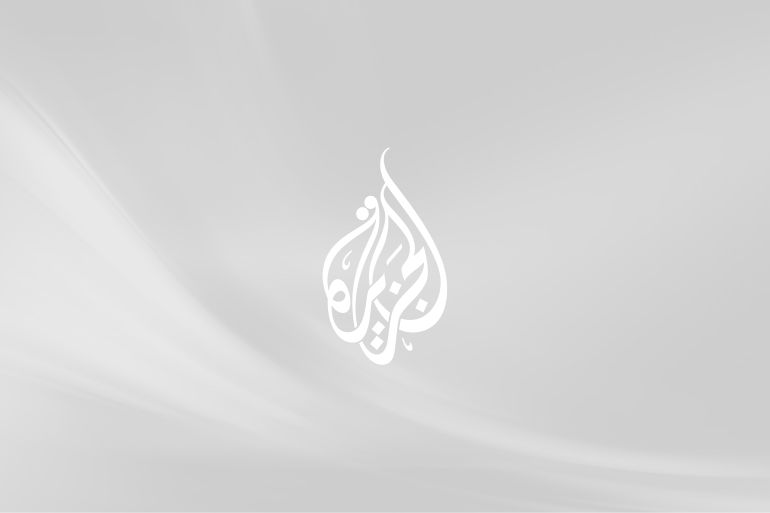He of the three-character name
As the Nobel peace prize is formally awarded to jailed dissident Liu Xioabao, Chinese officials can barely bring themse

Today is the Nobel Peace Prize ceremony in Oslo for recipient, Liu Xiaobo.
Today is also International Human Rights Day and two years ago today, Charter 08, the document Liu Xiaobo penned which is cause for his prison sentence, was published.
The last 48 hours in Beijing has seen quite a dramatic display of a government in overdrive because of this one man and this one award.
Most bewildering was the Confucius Peace Prize, which appeared to be a rather ad hoc event in response to the Nobel Committee’s decision.
The committee included a few university professors (including a Spanish professor), a psychologist, and a military attache. Nominees included Bill Gates, Lien Chan, Nelson Mandela, Mahmoud Abbas, and Jimmy Carter. Lien Chan was the lucky winner. A former vice-president of the Republic of China (better known as Taiwan), his office did not know he had won until journalists called.
“We’ve never heard of such an award and of course Mr Lien has no plans to accept it,” said a spokesman from Lien’s office.
In lieu of Lien then, organisers decided the cash prize of $15,000 would be given symbolically to a six-year-old girl, who had no relation to Lien. The block of cash, tied up in a red ribbon, was the size of the girl’s head, and she clutched it while another organiser raised her up in his arms for everyone to see. She also received a certificate.
It was an event for the benefit of foreign media. But if the organisers had hoped the Confucius Peace Prize would convince the world China is right it failed. And, in the opinion of this correspondent, it was an epic public relations fail.
During the question and answer period in the increasingly stuffy conference room of a central Beijing hotel, the Confucius Peace Prize Awards Committee couldn’t even bring themselves to say Liu Xiaobo’s name, instead circuitously referring to him as “he of the three-character name you mentioned”.
When Liu Xiaobo conjures up Harry Potter’s Lord Voldemort, the He-Who-Must-Not-Be-Named, you know some Chinese are experiencing a crisis.
The press conference went from bad to worse, as question after question was asked.
“Jimmy Carter was one of your nominees for the first Confucius Peace Prize. Carter signed a letter asking for the release of Liu. Does this make you a supporter of a supporter of Liu?”
Or, “Doesn’t it bother you and speak volumes if Lien Chan, the winner, hasn’t shown up? Do you just have a hard time accepting the truth?”
Or this one, by a Hong Kong journalist, “Have you studied Confucius? Because you appear to have gotten the concepts wrong…”
The failure to understand that their well-intentioned decision to defend China had actually come across to the rest of the world as a tragicomedy, is significant and underscores the disconnect domestic Chinese have about how China is perceived to outsiders. In other words: the propaganda works. And people here support their government and support the Communist Party.
The difference was particularly marked at the Confucius Peace Prize event when looking at the questions coming from the Chinese diaspora outside of mainland China.
Taiwanese and Hong Kong journalists recognised what the stunt meant even more than others, asking more direct questions and revealing their complete disdain for the organisers and their inability to separate what’s good for the people of China from what’s good for the Chinese government.
If there are any questions about how overseas Chinese view the entire story, look no further than the animated parody from Next Media, on “The Nobel Peace Prize versus the Confucius Peace Prize.”
And finally, on a more serious note, some good questions have been asked about the Nobel Committee’s decision and whether it has actually harmed the activist environment in China. After all, security and censorship has tightened significantly.
Amnesty International reports some 250 people across the country have had their freedom curtailed in some way. This even includes Ai Weiwei, perhaps China’s best-known artist and contributor to the design of the Beijing National Stadium, better known as the Bird’s Nest, from the Olympics. Yes, even he too, is not immune.
So does this mean the Nobel Prize has actually contributed to less freedom and rights in China? No one doubts it, in the short term. But it has given the intangible thing called hope to those who’ve worked for years in China, to make it a more open society.
As The Guardian reports, one of Liu’s closest friends, Liao Yiwu, says he is happy – despite being under house arrest. The Nobel Peace Prize has given encouragement to a community of human rights activists here, and that is no small thing.
As Liu Xiaobo himself once said:
“I have long been aware that when an independent intellectual stands up to an autocratic state, step one toward freedom is often a step into prison. Now I am taking that step and true freedom is that much nearer.”